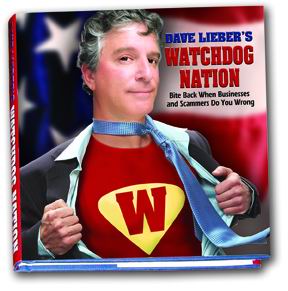You probably know the score of the latest game for your favorite baseball team. You may know your credit score. But you probably don’t know about other secret scores that companies keep on you.
They are your consumer scores, sometimes called e-scores or predictive scores. Hundreds of them exist, but they’re hidden from view. Trade secrets. Except they’re about your life. And they could be wrong.
A report this week called “The Scoring of America” by the World Privacy Forum gives samples of these e-scores:
The Job Security Score is supposed to predict future income and ability to pay.
Churn scores predict when a customer will jump from one company to a competitor.
The Affordable Care Act health risk score is “a proxy score for how sick a person is,” the report states.
The Medication Adherence Score predicts if a person likely takes medication recommended by doctors. And on and on. Divorced? Pregnant? A hunter? A gardener? An antique collector? There’s scores for those, too.
Some of this sounds benign. But privacy experts say the problem is that these scores along with, say, your ZIP code and whether you’re using a Mac or a PC, a phone or a laptop, even what kind of Internet browser you use, are all in play now when you visit websites.
How? They show companies who you are, or something close enough.
Ultimately, you may pay a higher price for a service or a product based on your score, or where you live (or where your computer thinks you live). That’s called price discrimination, and it’s happening more and more. These scores could affect housing and employment opportunities and prices for products and services.
Most people don’t realize this is happening, the Federal Trade Commission says.
When you visit a website or read an item on a blog, that site usually places a “cookie” on your device — a random 20-digit number that records what you do on the Internet.
When you visit a Web page that has space for an ad, a real-time auction occurs in a fraction of a second between various computerized bidders who want to match up with certain high scores. The winner is the ad you see.
Other factors, such as purchasing habits and activities in the real world, also affect scores. Income. Car. Education. Political affiliation. Average offline purchase cost. Hundreds of details.
Scores affect us in ways we can’t know. At some company call centers, a score can determine how long someone waits on hold or whether a customer gets to speak to a high-ranking supervisor.
I learned about these scores at a privacy seminar presented by the FTC. Ed Mierzwinski, consumer program director for U.S. Public Interest Research Group, told everyone that the unregulated market is “a non-transparent system where thousands of bits of our lives are being collected about us, shared and used to decide not who should pay less, but who can pay more.”
He added that nobody wants to pay more “and it’s fine for a company to offer its better customers discount cards. But nobody wants to be put in a compartmentalized box where they are profiled in a secret way and where a set of scores is used to determine who will pay more.”
The best known example of price discrimination is a story about a stapler. In 2012, The Wall Street Journal tested online pricing for a stapler at staples.com. The results showed that the prices varied based on how close a customer lived to a competing office supply store. If rival stores were within 20 miles, Staples discounted its price. Staples did not respond to a request for information from The Watchdog.
That same year witnessed perhaps the most extraordinary example of predictive scoring. After President Obama won re-election by a larger-than-expected margin, attention focused on his election team’s predictive scoring system. Democrats claimed they could ID likely voters almost block by block. By comparison, on Election Day the Republicans’ turnout software crashed during crucial voting hours.
Targeting customers is nothing new in marketing. If you’re reading this on dallasnews.com, we’re reading you too.
In the case of the scores, though, the science behind computer algorithms has exploded. Science, as is usually the case, is far ahead of rule-making.
Yet there’s a clear path to follow: Several decades ago, personal credit scores were secretive and unavailable. Yet they played a similar role in determining financial offers and opportunities. But in the past decade, things changed. Now every adult American has a right to learn about her or his personal credit score. One can challenge inaccuracies and learn if a poor credit score hurt chances for a loan.
Scoring can’t be stopped, but there can be fairness and disclosure similar to credit score rules. Nobody expects Congress to act on this. The hope among privacy advocates is that rule changes will come from the U.S. Consumer Financial Protection Bureau and the FTC.
We should be able to see our scores. Correct them when they’re wrong. Opt out of them being used, if we wish. There should be no secret scores that affect our pocketbooks.
Final note: The Federal Trade Commission recommended in 2014 that this industry become regulated. Congress, however, is not expected to act on this.
IN THE KNOW: Web privacy
To protect privacy, periodically delete cookies from your computer or device. Use a search engine to find out how to delete cookies for your particular device and browser.
Anti-virus software programs provide various settings for collecting and rejecting cookies.
Use “private browser” or “privacy mode” on the Web to hide your identity when researching health and other private matters. This feature doesn’t save cookies, temp files and page history. But an Internet provider still knows what pages are accessed.
– – – – – – – – – – – – – – – – – – – – – – – –
More Watchdog Nation News:
Watchdog Nation Partners with Mike Holmes
America meets Watchdog Nation/Listen to Fun Radio Interview
Watchdog Nation Debuts New e-Book and Multi-CD Audio Book
– – – – – – – – – – – – – – – – – – – – – – – –

Still here? Visit Dave Lieber’s other fun websites:
Personal: YankeeCowboy.com
Hipster site: DaveLieber.org








 \
\






